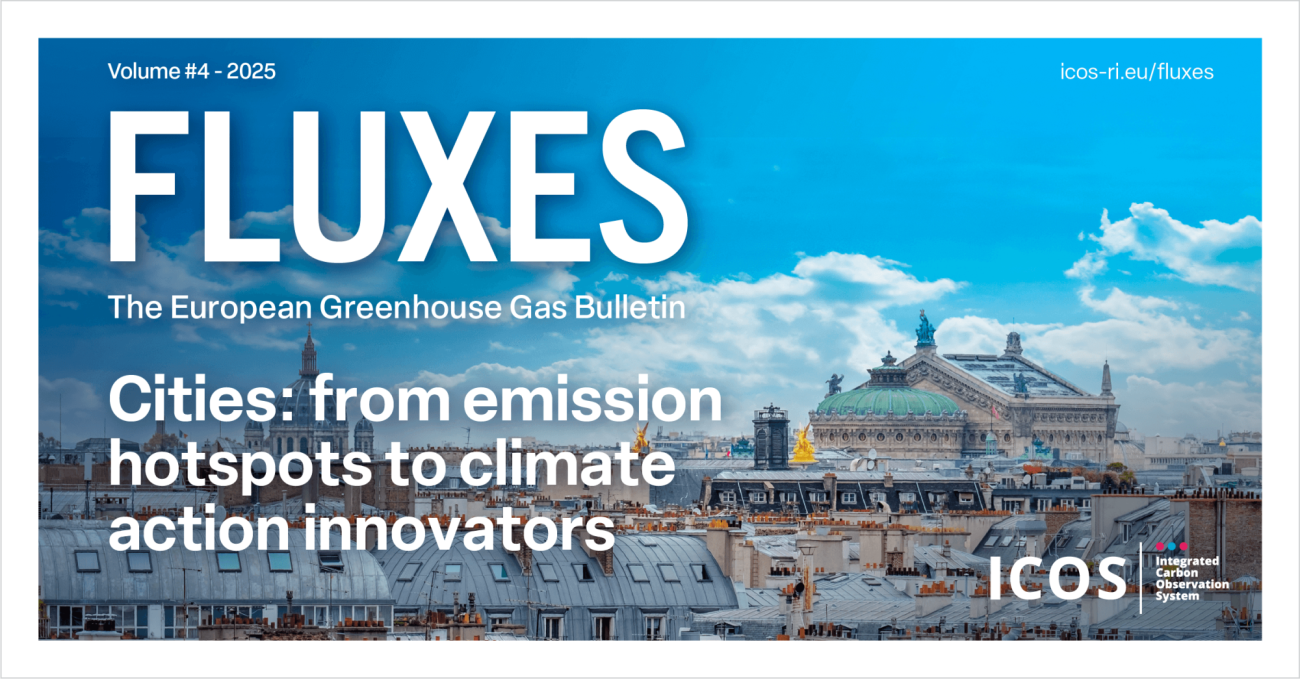
Cities across Europe are taking climate action to the next level. The new issue of FLUXES reveals how real-time greenhouse gas data is reshaping the path to net zero.
Three pioneering European cities have tested real-time, high-accuracy greenhouse gas emission monitoring to boost their decarbonisation plans. In the 2025 edition of ‘FLUXES the European Greenhouse Gas Bulletin’, we reveal how real-time emissions data can guide cities towards net zero. FLUXES also highlights the payoffs and paths to urban decarbonisation, together with the tools for measuring policy impact and accelerating urban climate action.
The greenhouse gas monitoring sensor networks developed by the Europe-wide ICOS Cities project—and tested as pilots in Paris, Zurich, and Munich—provide an independent, fast method of monitoring emissions, acting as an essential verification tool.
"For a city to truly tackle its greenhouse gas emissions, it must first know what it's up against," says Dr Werner Kutsch, Director General of ICOS. "By using science-backed real-time monitoring, we can validate a city’s estimated carbon reductions and reveal what climate actions are working. This is crucial."
As cities strive to reach their climate targets, they need to know where, when, and how emissions are occurring to identify the best opportunities for mitigation. “With this new monitoring approach, we can understand greenhouse gas emissions at a completely new scale, spanning from the city-level to local sources, such as traffic and power plant emissions. Thanks to the broad coverage, the team can detect local emission hotspots and emission sources previously unaccounted for,” says Professor Jia Chen at the Technical University of Munich (TUM), leading the ICOS Cities team in Munich.
Urban decarbonisation: policy and payoffs
The decarbonisation path outlined in FLUXES goes beyond merely cutting emissions; it is about improving public health, strengthening economies and building climate resilience through policy and actions. Accurate monitoring is key to implementing effective measures in sectors like:
- Transport: Switching to clean transport options can reduce emissions by 55% to 94%.
- Housing: Almost 75% of Europe’s buildings are energy inefficient and fossil fuels still dominate household heating.
- Nature-based solutions: The research shows urban green areas can take up 4–10% of urban emissions, highlighting the value of expanding green infrastructure.
Tools for action: turning science into policy
Cities want to know exactly where their emissions come from in order to understand which sectors to address, explains Professor Andreas Christen, University of Freiburg: “Let’s say your city does a large-scale tree planting initiative – is that actually helping to absorb some of the emissions or is that not relevant? If the city implements traffic changes, will that actually have effects?”.
Open-access data platforms like ICOS Cities, combined with analytical digital services and tools, can help policymakers see where emissions are being reduced and which policies could deliver the greatest climate benefits. FLUXES also discusses other innovative platforms and services, that can help cities measure, visualise, and even predict emissions in real-time.
In this issue of FLUXES, we also publish the latest European Social Survey data exploring residents’ views on climate change and city climate policies in Munich and Paris. The findings reveal strong public support for local policy over trust in national governments, driven by high urban environmental concern.
Read more about these topics – the magazine is available now at https://icos-ri.eu/fluxes/4
About ICOS Cities:
ICOS Cities is a Horizon 2020 project designed to pilot and implement a European urban greenhouse gas observation and analysis system to support cities in their climate mitigation efforts. The ICOS Cities consortium consists of more than 30 European universities and research institutions.